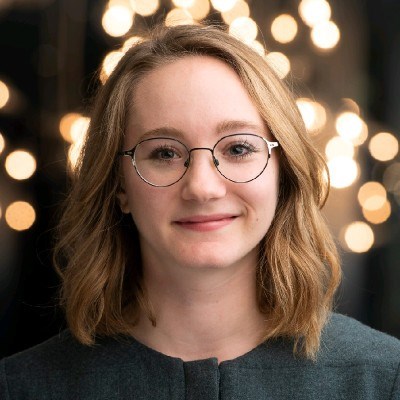Speaker: Brianna Lazerwitz, Energy Economist at the International Atomic Energy Agency (IAEA)
Join the ESCP Energy Society for an exclusive webinar exploring the role of nuclear energy in achieving a low-carbon future. From financing models to cutting-edge technologies like Small Modular Reactors, this session will provide insights into the pivotal role nuclear is expected to play in the global energy transition.
Gain key insights on:
- The IAEA’s role and mission in supporting global nuclear energy development
- The economics of nuclear energy: how the cost of nuclear compares to renewables
- Financial mechanisms and investment models that can make nuclear projects viable
- Geographic and policy trends shaping the nuclear investment landscape
- Business models that enable private sector participation in nuclear development
- Insights into the status and future roles of Small Modular Reactors (SMRs)
Questions we'll explore:
- How much nuclear capacity is needed to reach carbon neutrality by 2050?
- What are the barriers to attracting private investment in nuclear energy?
- How does the IAEA support Member States in energy planning and policy formulation?
- Which applications of nuclear energy (e.g., hydrogen, desalination, industrial heat) will grow in importance?
- What strategies can align nuclear power with long-term decarbonisation goals?
How to register?
Attendance is free of charge, but places are allocated on a first-come first-served basis. To register, click here.
About Our Speaker
 Brianna Lazerwitz is an energy economist with deep expertise in global energy systems and policy, with a focus on nuclear energy. Currently based at the International Atomic Energy Agency (IAEA) in Vienna, she provides analysis on energy systems, including nuclear energy, to support IAEA Member States in managing energy transitions and achieving sustainable development goals.
Brianna Lazerwitz is an energy economist with deep expertise in global energy systems and policy, with a focus on nuclear energy. Currently based at the International Atomic Energy Agency (IAEA) in Vienna, she provides analysis on energy systems, including nuclear energy, to support IAEA Member States in managing energy transitions and achieving sustainable development goals.
The objectives of the Planning and Economic Studies Section of the IAEA, in which she works, include: enhancing the capacity of Member States to conduct their own analyses related to electricity and energy system development, energy investment planning and energy-environment policy formulation, and to understand the associated economic implications; and improving understanding of the potential role of nuclear energy in the context of mitigating climate change and contributing to sustainable energy development.
Prior to joining the IAEA, Brianna worked at BloombergNEF as a U.S. Power Associate for more than two years and as an economist at the US Federal Energy Regulatory Commission (FERC) for three years, where she specialised in electricity market modelling and policy analysis.
She holds a Master of Arts in International Relations and International Economics from Johns Hopkins School of Advanced International Studies and a Bachelor of Science in Public Affairs and Policy Analysis from Indiana University.


















 Facebook
Facebook Linkedin
Linkedin Instagram
Instagram Youtube
Youtube EMC Newsletter
EMC Newsletter







